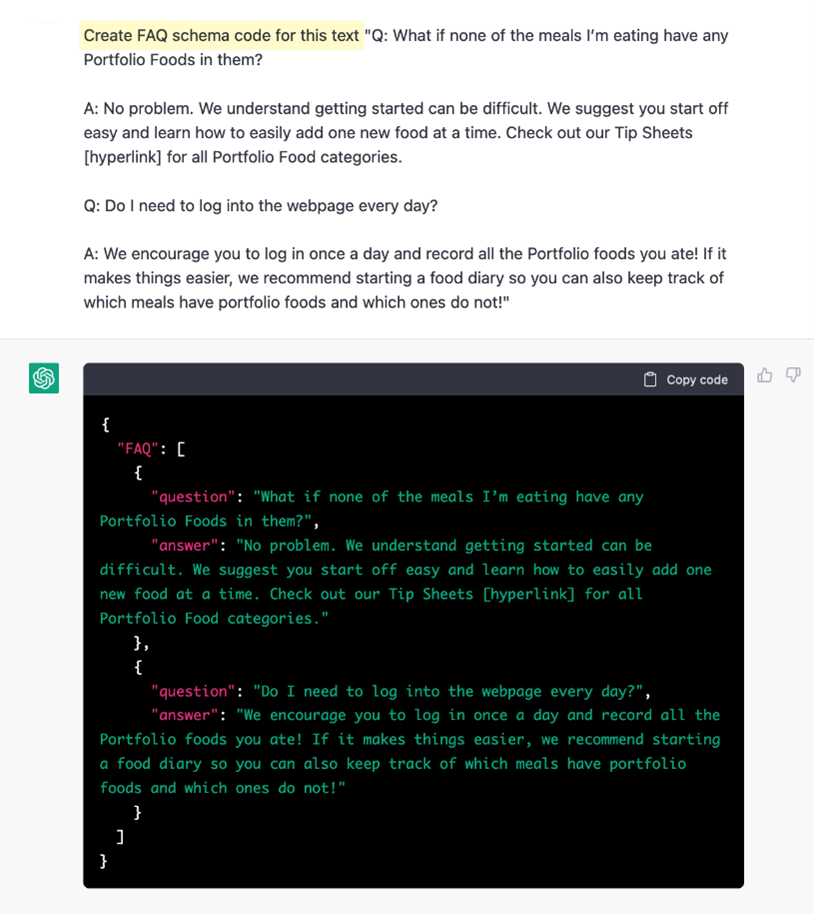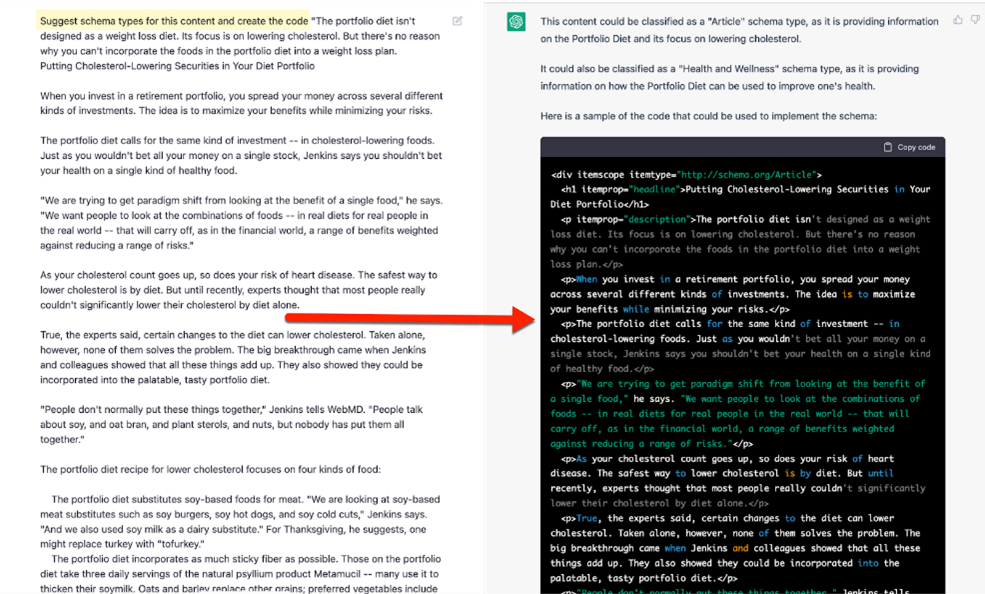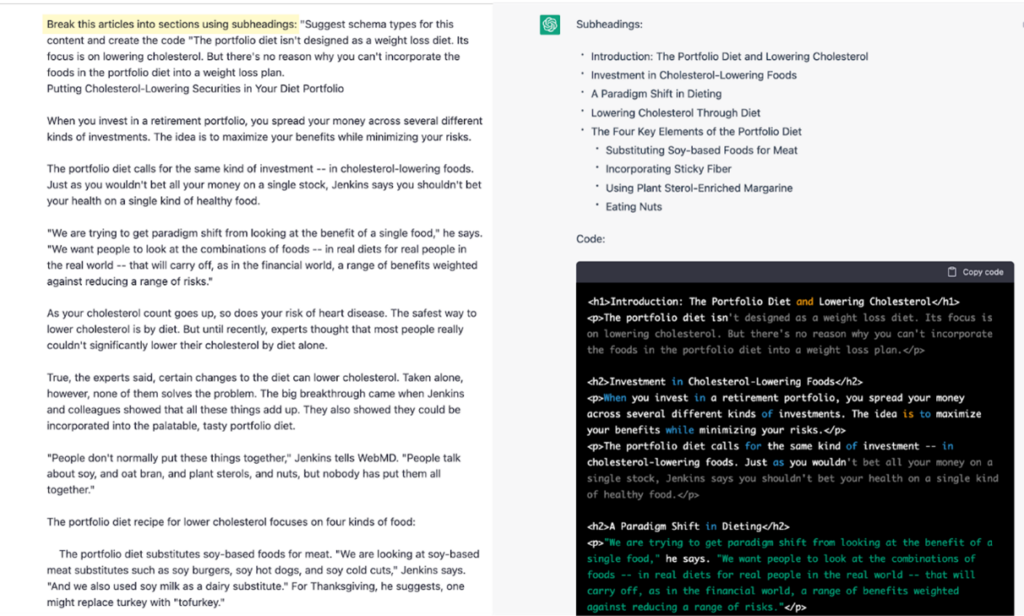Artificial Intelligence is taking SEO by storm quickly changing how we search and optimize for search.
How is Artificial Intelligence changing SEO? Here’s what’s going on:

Google Search Algorithm and AI
Google has a long history of using artificial intelligence in its algorithm.
Here are just a few Google’s AI-driven projects we are aware of:
- RankBrain was a huge step forward in understanding content and serving the right results to users. Matching a search query to a web document is tough for Google when a query is new, and Google has no history with it. RankBrain was helping Google process new and complex queries.
- RankBrain was solving that problem. BERT came later to help Google understand words in context. Instead of taking each word in the query (shingles, i.e. ~6 words used together within a document), BERT helped Google maintain the context.
- MUM was born in May 2021 goes beyond document context, it maintains context throughout different searches (like maintaining the same context within one discussion).
As you can see, what Google allowed us to see was their several query processing projects allowing a search bot to understand what humans were typing in the search box.
And yet, AI being used in Google’s algorithm is nothing new: It has been around for years and it hasn’t killed SEO.
With that being said, there’s nothing too new happening here. What has changed is that web publishers are now able to use AI (ChatGPT and similar tools) to create and optimize content.
Should Web Publishers Use AI for Content Creation?
Google may change their minds down the road but so far they don’t have any straightforward claim as to how their algorithm may treat AI-generated content.
You can use AI to (partially) create content (if you are using human review). For now, Google doesn’t seem to care. AI text is just text as long as its claims are verified. AI-generated content can harm people by giving poor or misleading advice, so make sure you update AI-generated content with trusted sources.
In fact, ChatGPT can produce a very good copy. It can generate better writing than an average web page has. It writes better essays than college students. But it also heavily relies on what you tell it to do.
AI thinks very literally, doesn’t understand sarcasm. It does what it is asked to, so make sure to play with different prompts and evaluate results.
At least 90% of getting good content out of ChatGPT relies on prompts.
How to write a good ChatGPT prompt
A good AI prompts has the following components:
- Voice: ChatGPT’s default writing is neutral, like one you’d find on Wikipedia. You can adjust it by including the voice into your prompt, for example, “Act as a professional SEO” or a specific person or even your own. Yes, you can copy your own paragraph into the tool and request it using your writing style when creating content.
- Audience: Tell it which audience you are targeting
- Tone: You can note which tone you’d like it to use in its copy, for example, tell it to write in an educational / casual / funny tone.
- Detailed instructions, for example, “provide main points”, “write a summary”, “create a listicle on”… etc.
Beyond Writing: More Ways to Use AI in SEO
There are many ways you can use AI for SEO. Here are just a few ideas:
Generate Schema Code
Schema helps Google to better understand your page, and it also helps your pages generate rich snippets in organic search. There are lots of Schema generators out there but ChatGPT doesn’t need lots of instructions or copy-pasting, so it definitely saves time. Simply copy-paste your content and ask for a specific Schema code:

Or you can simply copy-paste your content and let the tool suggest Schema types that should be used.

Likewise you can use the tool to generate HTML or CSS as well as many other types of code.
Improve your content
Grammar errors are bad for usability and may reflect poorly on your brand’s reputation. There are multiple Grammar checkers out there (even some that are built into WordPress) but AI tools may do more than just catching spelling and Grammar errors. They can rearrange your content to make it sound clearer, summarize your article for it to have better chances to get featured, add bullet points (if you ask) and even suggest subheadings:

Make sure to play with your commands to get different suggestions on improving your content.
Create meta descriptions
A meta description is not a ranking factor meaning that Google doesn’t use its content when analyzing relevancy of a page. And yet, it is still often used to generate a search snippet of a page. So making sure each of your pages has a meta description is a good way to have a better control over your organic search snippets.
Since it is not a ranking factor, using AI to generate a 1- or 2-sentence summary of a page is not going to get you into trouble, even if Google starts actively detecting and going after AI-generated content. And yet, it can save you quite some time.
Ask ChatGPT to summarize your page in 1 or 2 sentences: Here’s your meta description. You can edit it a bit to add your important keywords for them to be in bold when the meta description is used to generate a search snippet.
Organize keywords by intent
Search intent is one of the most important concepts in SEO because it is Google’s priority to give its users exactly what they need. When planning content, assigning search intent to keywords is the next step after generating keyword ideas.
This could take a lot of manual work. You can outsource this part but you can never be sure the search intent is correct for each keyword.
ChatGPT can handle this task very effectively. Just ask it to categorize your list by search intent and copy-paste your list. You may have to copy-paste parts of your list as the tool doesn’t handle long lists of data too well for now.
Generate title/heading ideas
Creating a clickable title tag which is also optimized for SEO is always an issue, so any help in brainstorming is always helpful. The beauty with AI tools is that your instructions can be pretty loose, so you don’t have to think hard:
But you can also steer the tool into any specific direction, for example, you can ask to generate “how to” content ideas:
There are many more ways you can use AI tools (ChatGPT specifically) for various SEO tasks. Feel free to experiment with commands and see what happens. For example, you can ask the tool to analyze content and give you local SEO recommendations, and you may be surprised at how good those suggestions will be!

